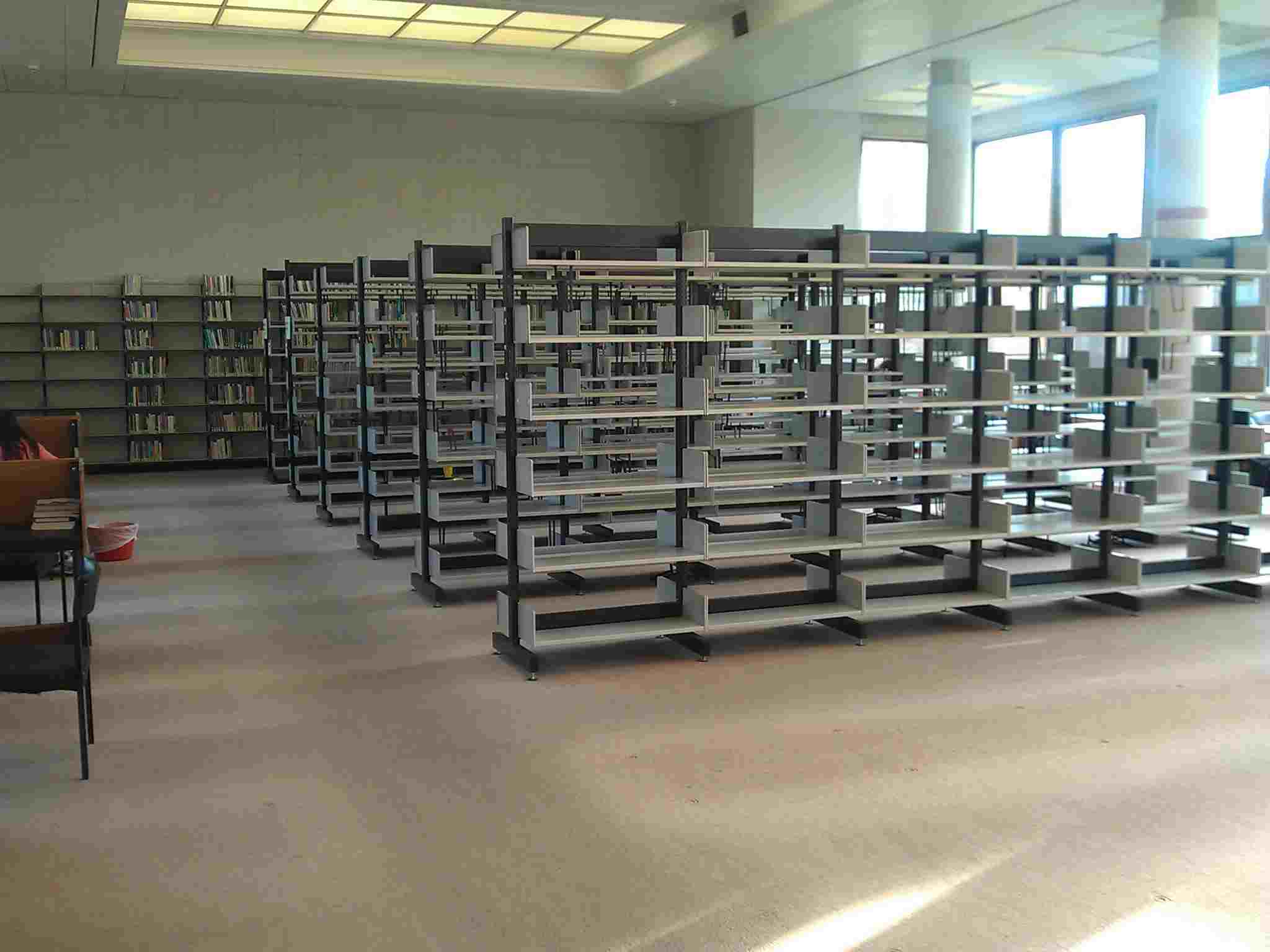Dead trees have been replaced by a paywall
Every now and again I see a reference to that looks like an interesting paper that was published before the Internet age (i.e., pre last 90’s and not available for free download). I keep a list of such references and when I am near a university with a good library I stop off to look them up; unless there is an urgent need this is very much a background task and before last week my last such visit was over three years ago.
Last week I dropped by Reading University, where I sourced much of the non-Internet available papers for my last book. The picture below illustrates what I found, periodicals are being removed to make way for desktop space, so students can sit typing away on keyboards.

I imagine the librarian is under pressure to maximise the efficient use of his large building and having row upon row of journals, many older than most of the students, just sitting there waiting for somebody like me wanting to look at perhaps a dozen or so of them cannot be said to be that efficient.
Everything is going digital, the library catalog was full of references to where journals could be found online. The problem is that the digital content is licensed to the University and only available to members of the University (e.g., students and lecturers). Without a logon id the journals are unavailable to non-academic users. Reading are continuing their open policy to external users by offering guest accounts (“where licence conditions permit”, I will find out what is available on my next visit).
Those readers who don’t have much interaction with the academic world may not be aware of the very high rates many publishers charge for access to published papers (that are provided to them free by academics) or the large profits made by these publishers.
Academics are starting to react against the high cost of journal subscription; I’m please to see that a boycott is gathering steam.
Boycotts are very well meaning, but I suspect that most academics will continue to keep their head down and go with existing practice (young academics need to get papers published in established to move up in their world).
We the tax payers are funding the research that discovers the information needed to write a paper and paying the salaries of academics to write the papers. Why are we the tax payers providing money to university libraries to subscribe to journals whose contents we have paid to create? If the research is tax payer funded we should not have to pay to see the results.
How do we remove the paywall that currently surrounds much published research? As I see it the simplest solution is to stop providing the funding that university libraries use to pay for journal subscriptions. Yes this will cause disruption, but the incentives are for most academics to continue with the current system and or course no company is ever willing to give up on a cash cow.
What can you do? If you are in the UK you can write to your MP to make him/her aware of your views. If readers have any other ideas please make use of the comments to tell others.
I agree wholeheartedly with the sentiments expressed.
However, to be fair to Reading University, they do now offer “guest access to e-resources”:
http://www.reading.ac.uk/library/eresources/accessing/lib-eaccess-guest.aspx
I haven’t tried it myself yet, but I would expect it to cover older rather than newer material (the latter, as you say, is usually available for download these days).
@Stephen Cox
I have always found Reading University library to be very welcoming and the staff helpful; I had not spotted this guest access service they offer and will try to drop by soon to see what journals can be accessed.
Up until last week I was a bystander, it was only the shock of realising that the access I had3 had was now gone that prompted this post.
One thing the government could do is negotiate a country wide agreement for everybody to have access. The publishers do have costs in running a storage/access service and they have to make some profit (just not the margins they currently enjoy).